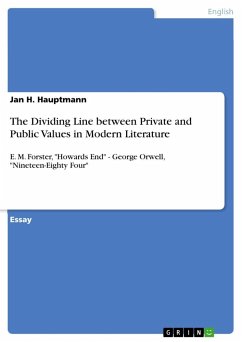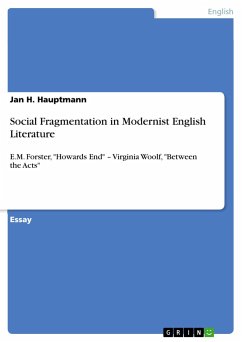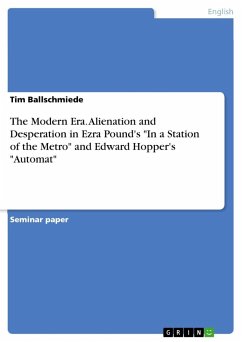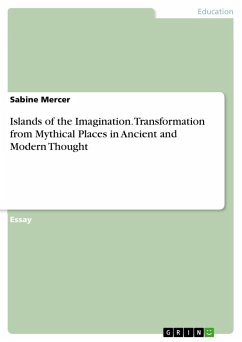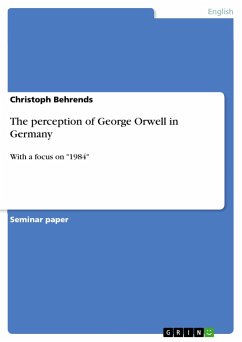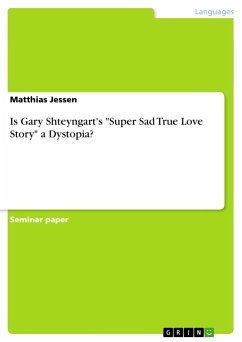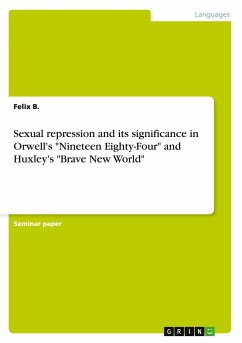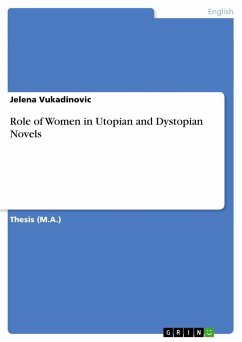Essay from the year 2007 in the subject English Language and Literature Studies - Literature, grade: 1,3, Queen's University Belfast (School of English), course: Literature and the Politics of Modernity, language: English, abstract: This essay focuses on two modern literary works by E.M. FORSTER and GeorgeORWELL. While FORSTER's fourth published novel Howards End was alreadywritten in the early twentieth century (1910), ORWELL's famous dystopiaNineteen Eighty-Four was only published in 1949 and may therefore beconsidered as a late modern work.The historical background of the two novels obviously differs to a greatextent. On the edge of the First World War, E.M. FORSTER was particularlyconcerned with a disrupted society under the direct influence of the significantchanges in modern social life. The increasing forces of imperialism andcapitalism and tendencies of a growing urbanisation largely changed the lives ofpeople, directly affecting their private and public spheres. When ORWELL wrotehis novel under the influence of the Second World War, modern life hadadditionally been shaken up by two world wars and the effects of totalitariansystems in Europe.Despite the historical gulf between Orwell and Forster, which makes adirect comparison of their works impossible, this paper will concentrate on theprivate and public values of the novels' characters and thus also pay attentionto probable political notions of the authors. It will particularly figure out if the twowriters either endorse or contest a dividing line between private and publicvalues, additionally taking into consideration formal features as well as theoverall plot.Forster's novel Howards End predominantly deals with the interrelationsof two middle class families called the Schlegels and the Wilcoxes. Despitebelonging to the same class, their actual social background differs to a greatextent. Margaret and Helen Schlegel are initially depicted as not being English"to the backbone", which is not only true because of their German origins, butalso because of their idealist attitude they seem to have adopted from theirfather, who rather was "the countryman of Hegel and Kant, [...] the idealist,inclined to be dreamy, whose Imperialism was the Imperialism of the air".Idealism and anti-imperialism are obviously not to be considered as being veryEnglish any more, but rather seem to have died out all over modern Europe.
Hinweis: Dieser Artikel kann nur an eine deutsche Lieferadresse ausgeliefert werden.
Hinweis: Dieser Artikel kann nur an eine deutsche Lieferadresse ausgeliefert werden.

